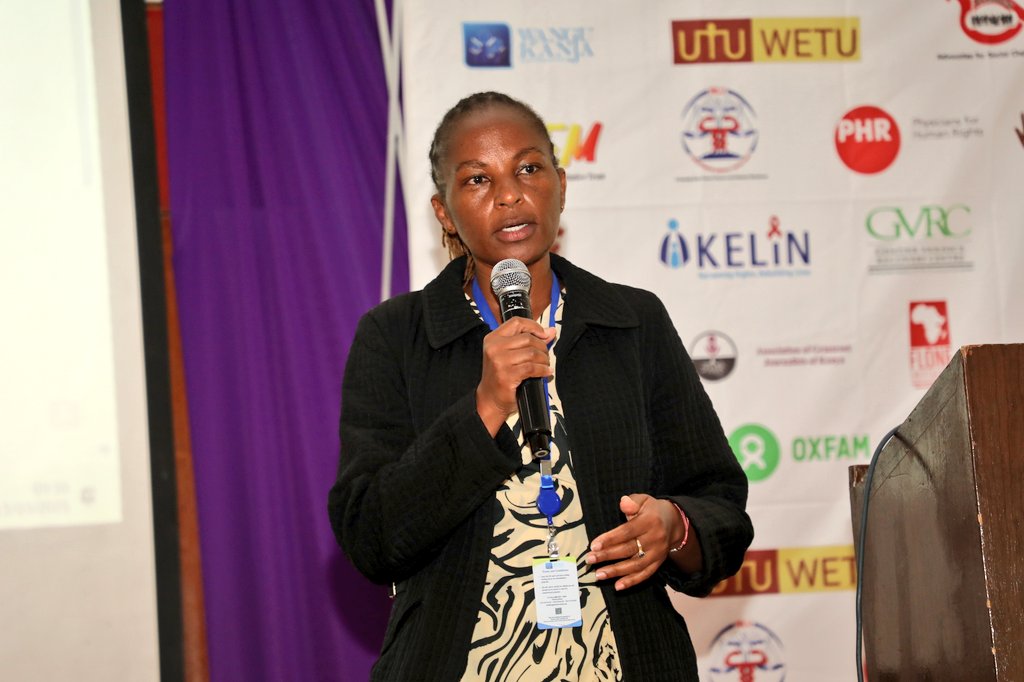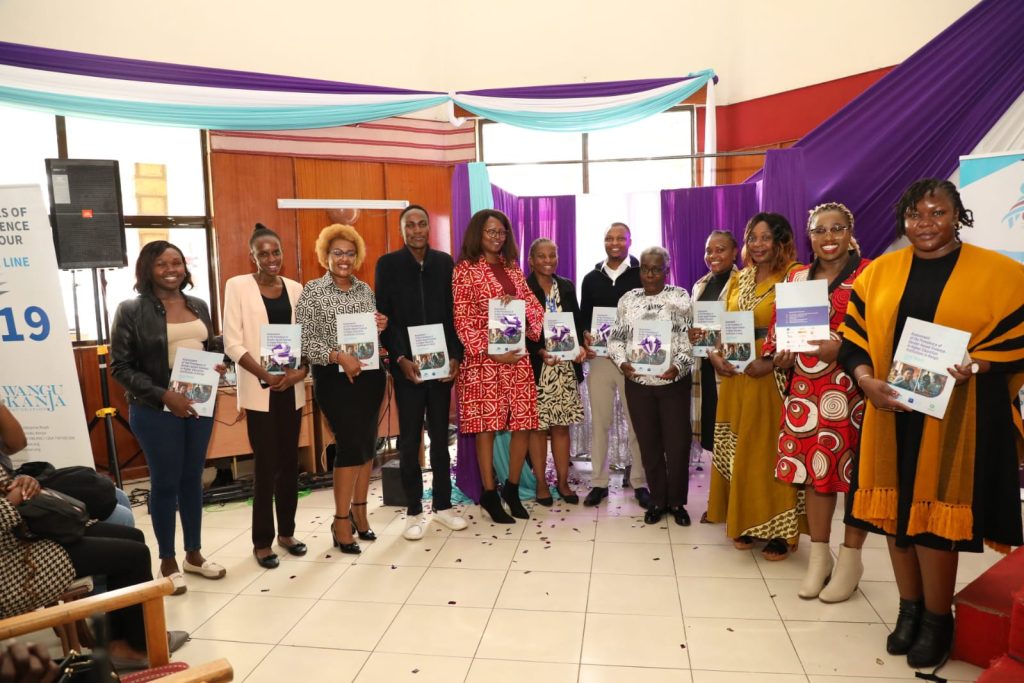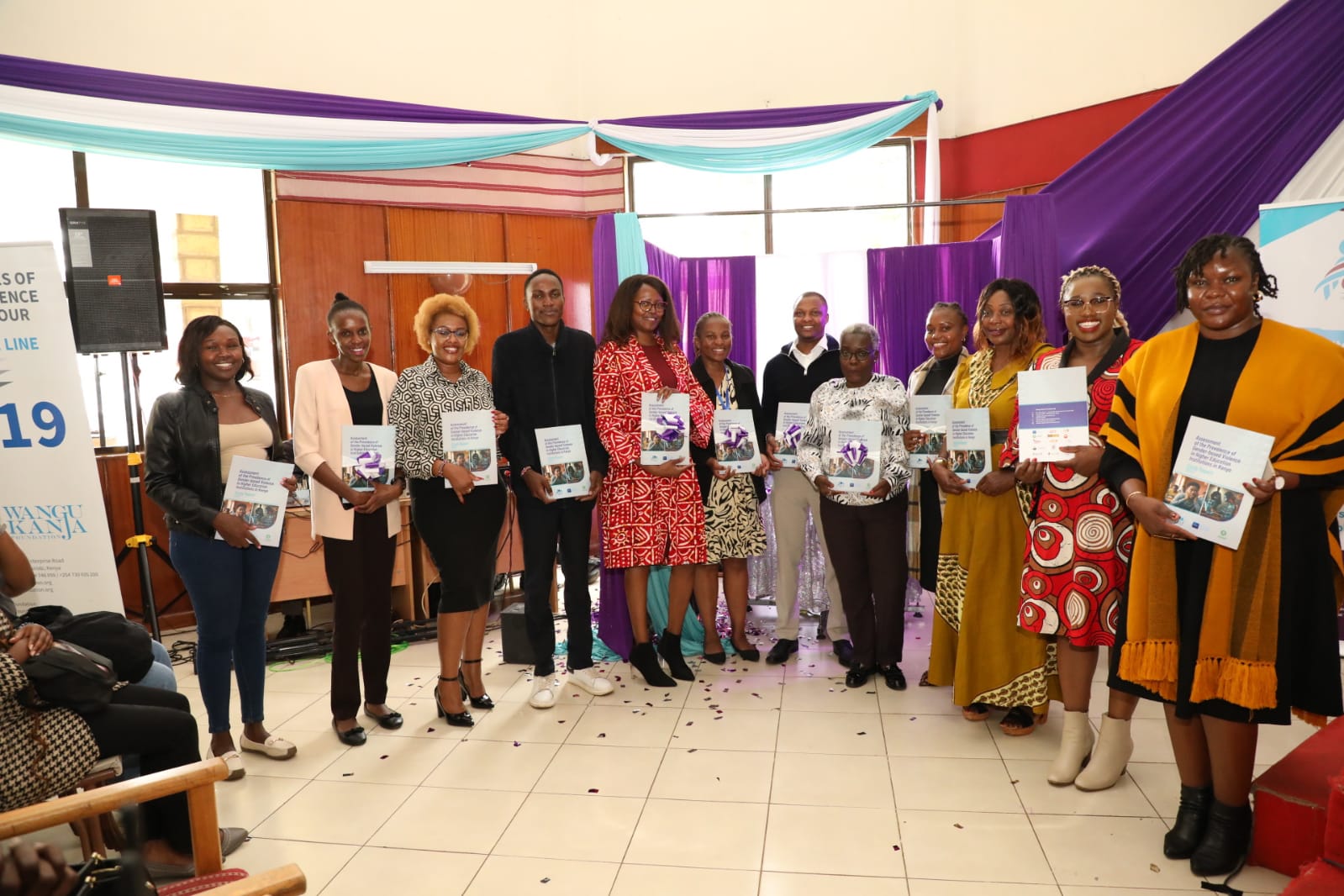A groundbreaking report on sexual and Gender-Based Violence (SGBV) in Kenya’s universities has revealed alarming statistics and sparked urgent calls for action.The report examines the prevalence of GBV, reporting mechanisms, and response systems, while advocating for survivor-centered, trauma-informed policies to support affected students.
Wangu Kanja, founder of the Wangu Kanja Foundation and convener of the Coalition Against Sexual Violence (CASV), highlighted challenges such as victim-blaming and underreporting, which often lead to depression and harmful coping mechanisms among survivors. The findings aim to drive policy changes and create safer environments for students.

Speaking during a press briefing,Tammary Rotich, Deputy Vice Chancellor for Academic and Student Affairs at Amref International University, expressed grave concern over the findings. “Sexual and gender-based violence is a critical issue for universities,” she said. “The data shows that 50% of young women in universities experience violence, with 35% experiencing sexual violence. This is deeply disturbing.”
The report also highlights that 8% of gender-based violence cases in Kenya occur among individuals between the ages of 18 and 24, the primary age group for university students. Rotich noted that the COVID-19 pandemic has exacerbated the crisis, with lockdowns trapping victims at home and cutting off access to health services and support systems.

Roselyn Mukabana, Nairobi County Gender Based Violence Coordinator, highlighted new challenges. “We are witnessing new forms of violence such as technology-based SGBV, including cyberbullying and stalking,” she explained. “These digital threats complicate efforts to collect evidence and hold perpetrators accountable.”
To combat SGBV, Nairobi County has launched several initiatives, including 50 integrated health facilities and a network of gender-based violence focal points in its 17 sub-counties. The county has also partnered with faith-based organizations to ensure consistent messaging on SGBV prevention and response.
But significant hurdles remain. Mukabana emphasized that limited funding hinders effective action. “Last year, we recorded 24,000 cases, but only 1,200 resulted in convictions due to poor documentation and delayed reporting,” she said.
The report also underscores the need to include men in the conversation. “We need to change the narrative that men are the only perpetrators,” Mukabana added. “Last year 2,069 men reported experiencing intimate partner violence. This is a critical issue that we must address.”
In response, the report calls for stronger policies, increased funding and greater collaboration among stakeholders. Amref International University has already taken steps by adopting a zero-tolerance policy on SGBV and implementing safeguards to protect students and staff.
As Kenya faces the triple threat of HIV, teenage pregnancy, and harmful cultural practices, the report serves as a stark reminder of the work ahead. “We must act now to prevent these numbers from rising,” Rotich urged. “Universities should be safe havens for learning, not breeding grounds for violence.”
The launch of this report marks a pivotal moment in the fight against SGBV in Kenya’s universities. With the coordinated efforts of government agencies, educational institutions, and communities, there is hope for a future where students can thrive without fear.
“This is not just a university problem – it is a societal crisis,” concluded Mukabana. “Together, we can create a safer and more equitable environment for everyone.”










